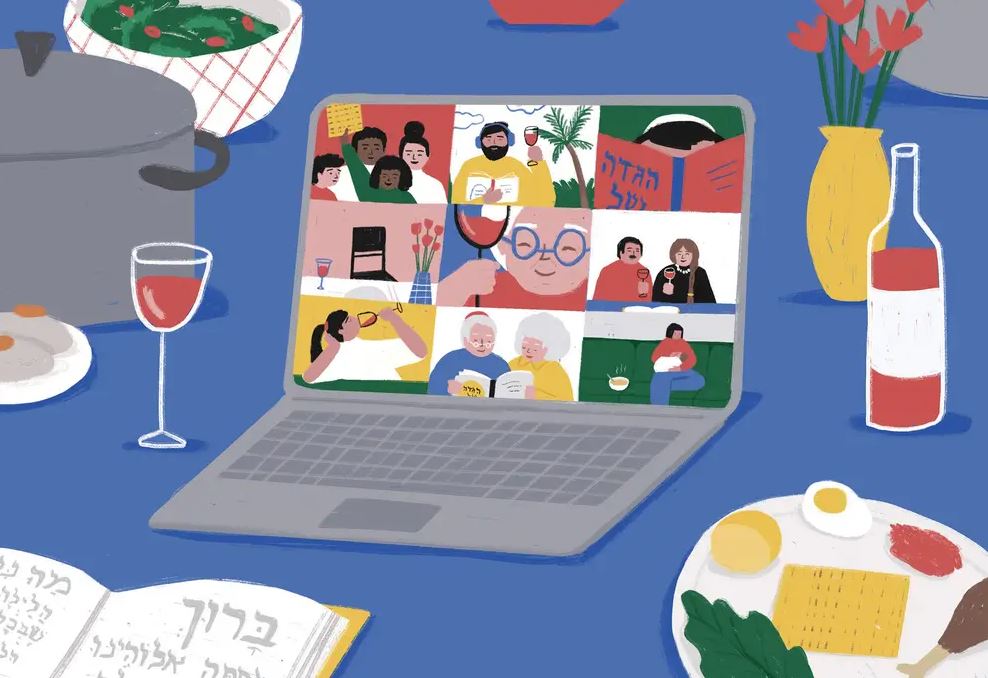The Bitter Herbs of Life
How enduring hardships can help you appreciate the finer things.
Written by: Emma Driban, JFS Content Developer
Why is this year different from all other years?
Every year at the Passover Seder, family and friends take part in the retelling of the Exodus story, completing symbolic rituals, and asking thought-provoking questions. The Passover story devotes long passages to descriptions of the Jews’ slavery and suffering in Egypt, and while it’s by no means the same, 2020 left many of us suffering too. Between the global pandemic, unemployment highs, social unrest, and political events, it may feel like the past year has left us little to celebrate. But, at its roots, the story of Passover is one of salvation and freedom.
We learn from the Passover story the connection between suffering and redemption. Through the biblical tale, we are reminded of the electrifying idea that redemption is an outgrowth of suffering. Suffering peels away the superficial and lays bare the core—it reveals levels of strength and resilience those who suffer wouldn’t otherwise know they possess. Of course, we all have free will and the choice in how we respond to our hardships. Some might lean into reactions of bitterness and resentment, but for those who choose otherwise, suffering can lead to growth and greatness.

Every year on Passover, we partake of the maror to remember the bitterness of those forced into slavery. But maybe each of us has our own “bitter herbs of life” we struggle with every day—a mental health challenge, the loss of a loved one, the loss of a job, sudden illness. Bitterness can take many forms, big or small, temporary or chronic, individual or institutional. It’s easy to ruminate on these hardships, but we can also learn to appreciate the sweetness and relief that come from withstanding and acting against the adversities, like the charoset sweetening the bitter herbs on the seder plate.
In her March 2020 New York Times article “The Power of Passover During a Plague,” Alana Newhouse points out: “Most Jews throughout history have not been free, whether from murderous regimes or famines or pandemics. What we have been is devoted to the idea that we deserve to be.”
Our bitterness and suffering prompt us to seek freedom, make changes, voice our opinions to improve our lives and our communities. Had the Jewish people never felt the bitterness of slavery, would they have been driven out of Egypt? Would the Jewish people and our communities around the world be what they are today?
The story of Passover is one of perseverance. We must persist through bitter times and work towards our redemption. It is difficult to stay a hard course, but endurance pays off. And if 2020 has taught us anything, it’s about endurance—following stay-at-home orders, adhering to health and safety guidelines, refraining from seeing loved ones, watching social injustice divide our country. It hasn’t been easy, but there is hope these trying times are coming to an end.
After this past year, “we can relate more to the entire story of our biblical ancestors—not just the joy of freedom, but the agony of oppression and being at the mercy of forces beyond our control,” said Rabbi Rebecca Dubowe in a 2020 interview with Charlie Schlenker. This new perspective helps us better appreciate the good things in life and the freedoms we still have, even if they feel a little different.
Everyone has their Egypt. It can be intimidating but we must move forward, wandering through our own deserts, until we reach the promised land. Bitterness alone, without direction, can quickly become more painful and self-destructive, but with help, optimism, and action, the bitter herbs of life may just become our springboards to redemption.
Searching for the sweetness in your bitter herbs?
To start your journey to freedom and recovery, complete our online intake form.

